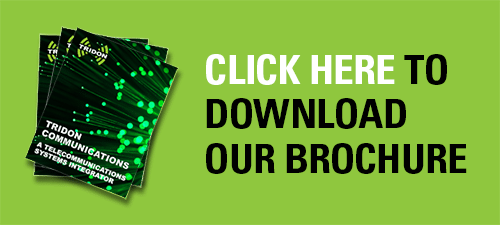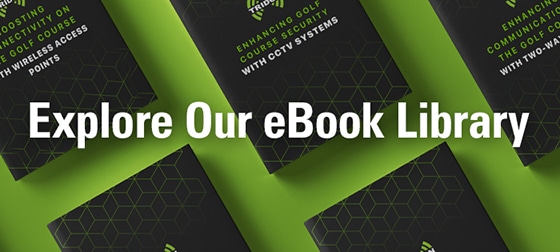
Imagine you’re deep in the heart of the Amazon rainforest on an expedition miles away from the nearest village. Suddenly, one of your team members falls seriously ill, and panic sets in.
Your mobile phone has no signal—there’s no cell tower for hundreds of miles. At that moment, you’re cut off from the rest of the world, unsure of how to get help. But that’s when someone in your group pulls a satellite phone and dials an emergency number. Within minutes, you’re speaking to a medical team ready to dispatch assistance.
This real-world scenario illustrates the power and importance of satellite phones. These devices, often seen as tools for extreme situations, are lifelines for many industries and individuals who work or travel in the most remote and unpredictable environments.
In this blog post, we’ll explore who uses satellite phones and satellite phone rentals; the industries that rely on them and why they are often considered lifesavers in critical situations.
What Exactly Is a Satellite Phone, and How Does It Work?
A satellite phone, often referred to simply as a satphone, is a type of mobile phone that operates through satellites orbiting the Earth instead of relying on traditional cell phone towers.
Unlike regular earth-bound mobile phones, which require proximity to land-based cell towers to function, sat phones can provide voice, text, and sometimes data services from virtually anywhere on the planet. This makes them especially valuable in remote or disaster-stricken areas where conventional cellular networks may be nonexistent or inoperable.
Satellite phones work by sending signals to communication satellites in space, which then relay the signal back to a ground station and onward to the public telephone network or another satellite phone. The process is slightly slower than with traditional mobile phones, but it ensures coverage in areas that are inaccessible to terrestrial networks.
Depending on the provider, satellite phones may connect to a single satellite or a constellation of satellites. These constellations can be geostationary satellites (GEO satellites), which remain over a fixed geographical location or orbiting satellites which orbit the entire planet in either a low Earth orbit (LEO satellites) or medium Earth orbit (MEO satellites). Each type of satellites in orbit possess advantages and limitations in terms of coverage and signal latency.
So, Who Uses Satellite Phones?
Now that we understand how satphones work let’s take a look at some of the industries that rely on this critical communication technology.
Military and Defense Agencies
Perhaps one of the most well-known users of satellite phones is the military. Military satphones are routinely used for secure, real-time communication in remote conflict areas where other forms of communication are either compromised or unavailable.
During combat missions, military personnel often operate in rugged, hostile environments where conventional mobile networks are non-existent. Satellite phones are unmatched in these types of situations. They ensure that troops in the field can communicate with the command center to call for support when required.
Finally, satellite phones offer enhanced encryption and security features, making them ideal for sensitive military operations.
Emergency Services and Disaster Response
If a natural disaster strikes, the ability to communicate often collapses. Hurricanes, wildfires, and earthquakes can destroy infrastructure, wiping out cell networks and landlines in minutes.
In these moments, satellite phones become essential. Firefighters, paramedics, search and rescue teams—those on the front lines of disaster relief—use satellite phones to stay in touch with one another and coordinate efforts with emergency management agencies.
With lives hanging in the balance, clear communication is everything. A satellite communications device will bypass the damaged infrastructure entirely, offering a lifeline when traditional networks fail. For this reason, experts often recommend using nothing less than the best satellite phone for emergency use, especially in regions that are hard to reach or prone to disasters.
Explorers, Adventurers, and Outdoor Enthusiasts
For those who venture into the wilderness, whether for exploration, mountaineering, or long-distance sailing, satellite phones are indispensable. Remote locations like deserts, oceans, and polar regions are often far outside the reach of traditional mobile networks. Adventurers use satellite phones to stay connected with loved ones or emergency services while trekking through isolated terrains.
For instance, climbers attempting to summit Mount Everest or sailors navigating across vast oceans depend on satellite phones for their safety. In case of an emergency, such as an injury or equipment failure, they can call for help no matter where they are. Having the best satellite phone for remote outdoor use can mean the difference between life and death in such situations.
Petroleum and Mining Industries
Workers in the oil & gas, as well as the mining industries, often operate in some of the most remote areas on the planet. Offshore oil rigs, deep-sea drilling platforms, and remote mining camps are far removed from populated areas and landline/cellular networks. These industries rely on satellite phones for routine communication, reporting, and emergency coordination.
In addition to basic communication, satphones are used to transmit operational data and reports from remote sites to corporate headquarters. Since traditional communication methods are unavailable in these regions, satellite phones serve as the primary mode of contact between the field and the office. This ensures seamless communication, even in the most desolate environments.
Maritime and Aviation Industries
Ships and aircraft are frequently out of range of conventional communication systems, particularly when they are traveling across oceans or flying over remote regions. For maritime and aviation professionals, satellite phones are a vital tool for ensuring continuous communication with port authorities, flight control centers, or emergency services.
Commercial vessels, private yachts, fishing boats, and even large aircraft use satellite phones as part of their onboard communication systems. In the event of an emergency, such as a mechanical failure or medical issue, satellite phones provide a reliable means of contacting authorities or arranging for assistance.
Journalists and Media Correspondents
In conflict zones, disaster areas, or regions with restricted communication access, journalists and media correspondents rely on satellite phones to report news in real time. Traditional communication methods may be unreliable, censored, or even dangerous to use in certain areas. Hence, a sat phone provides journalists with the ability to get their stories out – even from the most remote or war-torn regions.
Satellite phones also allow reporters to send updates, conduct interviews, and transmit videos or other media files back to their networks without needing local infrastructure. This ensures that news can continue to reach global audiences despite challenging circumstances.
Government and Diplomatic Officials
Diplomats, government officials, and intelligence agencies often operate in international contexts where communication networks and internet may not be trustworthy or functional. In such cases, satellite phones are utilized for secure, unmonitored communication. Whether coordinating humanitarian missions or conducting sensitive diplomatic negotiations, a satellite phone allows government officials to communicate privately and securely.
In times of political instability, satellite phones also serve as a backup communication tool when local networks and internet are compromised or shut down.
Humanitarian and NGO Workers
Non-governmental organizations (NGOs) and humanitarian workers are often deployed to crisis zones, remote villages, or refugee camps where communication infrastructure is minimal or non-existent.
A satellite phone is critical for coordinating aid, managing volunteers, and communicating with headquarters to ensure that help reaches those who need it most. Take, for example, the Ebola outbreak in West Africa or after the devastating earthquakes in Haiti, humanitarian workers used satphones to organize relief efforts, track supplies, and manage logistics in areas where communication was otherwise impossible.
Choosing the Best Satellite Phone for Emergency Use
Now that we’ve covered some of the industries and individuals who rely on satellite phones, let’s look at what features make a satellite phone specifically suitable for emergency use. The best satphones (and satphone rentals) in the satellite phone industry meet some key emergency criteria:
Satphone Coverage
Long Battery Life
Durability
Ease of Use
Emergency SOS Functions
Popular Satellite Phone Equipment
A few well-regarded satellite phone models include the Globalstar GSP1700, the Globalstar SPOT-X’s 2-Way Satellite Messenger, and the Iridium 9555. These devices stand out for their rugged build, wide-reaching coverage, and specialized emergency capabilities. Their reputation for reliability and functionality makes them go-to options for those who need dependable satellite communication in harsh environments.
GLOBALSTAR™ GSP1700
Globalstar™ provides true interoperability for the public and private sectors to communicate within and across agencies, jurisdictions via voice, data, or video-on-demand, in real-time, when needed, and as authorized. Personnel can quickly, and clearly, coordinate with co-workers when terrestrial networks are down.
KEY FEATURES
- Powered by 100% satellite technology
- Works where cell phones don’t
- Crystal-clear voice quality
- No “tunnel sound” or voice delay during conversation like the competition.
- Utilizes Globalstar’s fastest data speeds – 4X faster than any other mobile satellite company and getting faster every day (a 9600 hotspot is required, sold separately).
KEY BENEFITS
Instant Infrastructure
The Globalstar GSP1700 supplies communications in areas where existing infrastructure is outdated, insufficient, or damaged.
Independent of Terrestrial Infrastructure
The Globalstar GSP1700 provides redundancy in the case of terrestrial network outages. Business, recovery efforts and communication between loved ones never has to stop when using The Globalstar GSP1700.
Temporary Network Solutions
The Globalstar GSP1700 can often provide the only practical, short-term solution for getting necessary information in and out such as phone calls, emails or document and image sending.
Rapid Provisioning of Services
Since satellite solutions can be setup quickly using the Globalstar GSP1700 mobile satellite phone or the Globalstar Sat-Fi®, the world’s most powerful satellite hotspot, you can achieve a high level of communications rapidly without high budget expenditures.
SPOT X® 2-WAY SATELLITE MESSENGER
SPOT X® 2-Way Satellite Messenger with Bluetooth® wireless technology delivers affordable, reliable, location-based tracking, messaging and life-saving S.O.S. technology to hundreds of thousands of users around the world 24/7.
SPOT X provides 2-way satellite messaging so you can stay connected to remote and lone workers, even outside cellular range. Connect SPOT X to your smartphone via Bluetooth wireless technology through the SPOT X app and access your contacts quickly and easily.
This includes direct communication with emergency services and pinpoint satellite location of your team. SPOT X is flexible too; each unit has its own U.S. mobile phone number so units can be reached via cell or other SMS devices at any time.
KEY BENEFITS
S.0.S.
Send an S.O.S. to the 24/7 search & rescue center, message back and forth about the nature of your emergency, and receive confirmation when help is on the way.
TRACKING
Select from 2½, 5, 10, 30 or 60 minute tracking intervals.
MESSAGE
Exchange messages with any cell phone number or email address from virtually anywhere in the world.
SPOT X APP
Easily connect the SPOT X device to the SPOT X app via Bluetooth and have satellite connectivity at your fingertips.
POST TO SOCIAL
Link your social accounts.
CHECK-IN
Quickly and easily let everyone know you’re OK.
COMPASS
Built-in compass and programmable waypoints to help you navigate.
Iridium® 9555
Iridium® is ready for action. Even with a significantly reduced footprint from past Iridium phones, the Iridium 9555 packs serious power into its smaller frame. With more hand-friendly form factor, and space-saving features such as an internally stowed Iridium network antenna, the new Iridium 9555 sleek handset from Iridium is designed to easily keep you in touch wherever your adventure or mission leads you.
KEY FEATURES
- Compact size for easy portability
- Intuitive Iridium user interface for out-of-the-box functionality
- Iridium Industrial grade design for unparalleled durability
- Enhanced SMS and email messaging capability
- Integrated speakerphone
- Headset and hands-free capability
- Internally stowed satellite communications antenna
- Mini-USB data port for add-on satellite phone services
Keep In Touch When You Need To
For those who work or travel in challenging environments, owning (or renting) satellite phone devices can provide peace of mind and, more importantly, a lifeline in critical situations. And this is where Tridon Communications comes in.
Whether you’re a soldier on a mission, a journalist reporting from a conflict zone, or a sailor navigating the high seas, satellite phones or sat phone rentals from Tridon Communications offer global coverage for a level of connectivity and safety that few other technologies can match.
Trust Tridon for Reliable Satellite Phone Communication
By partnering with leading manufacturers like Motorola Solutions, Globalstar and Iridium, Tridon Communications can provide your team with a range of satellite phones and other communications equipment. Tridon will keep them connected when they venture out beyond the coverage range of mere earth-bound communications.
In addition, Tridon Communications can also provide the convenient and affordable data plans you need for satellite solutions. This ensures that your team is never caught without the ability to make calls for help whenever they need it and wherever they are!
CALL TRIDON TODAY!



